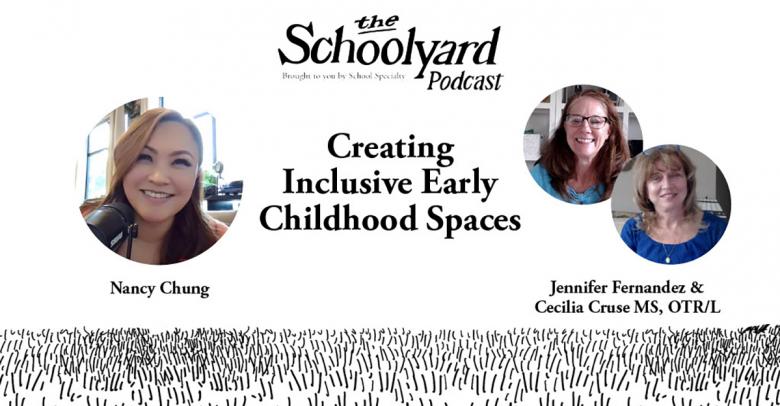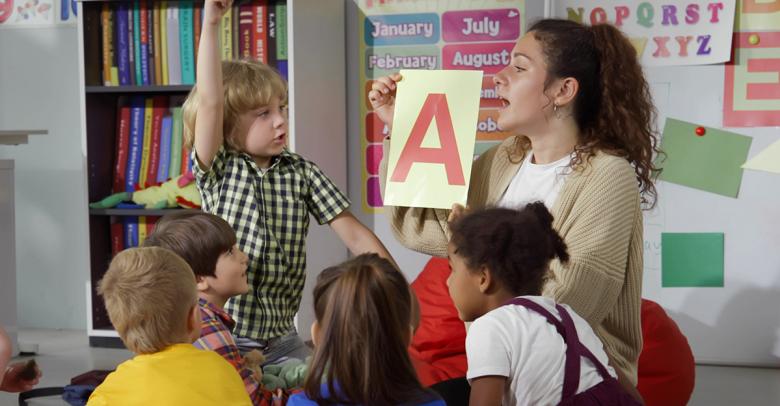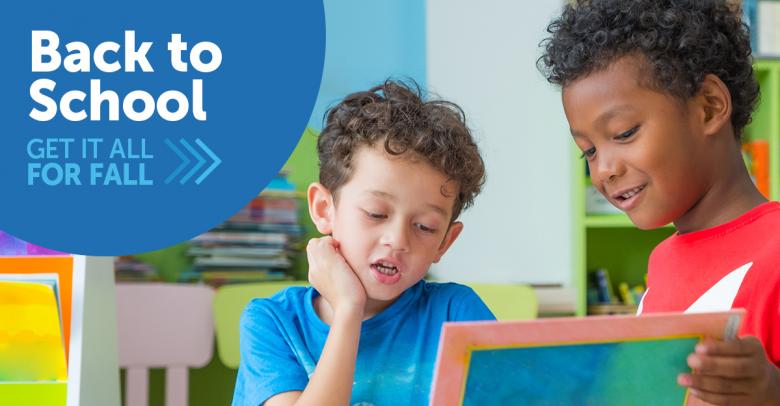Much of my blog writing has focused on my neighbor kids as I observe their day-to-day play. I recently moved and now have no neighbor kids to spy on. In fact, one of their moms texted me to ask what I was going to write about now that I couldn’t watch the children from my kitchen window. Turns out there are other ways to acquire blog material!
Recently, I was shopping in a local department store. While in the dressing room trying on some clothes, I overheard two ladies talking. It sounded like one was the director of a preschool. She was explaining how a new boy had started in their three-year-old class, but he had displayed some challenging behavior, such as running out of the room and being aggressive toward other children. She went on to describe how she had to call the parents and tell them he “wasn’t ready for preschool” and that he wouldn’t be allowed to come anymore. Finally, she told her shopping companion, that although the classroom teachers were very experienced, she just didn’t feel they could handle him while attending to the others in the group.
While I was already disheartened from trying on twenty bathing suits that did not make me look as slim as I would like to be, I was even more depressed after hearing the director’s story. It was all I could do not to chime in on the conversation and ask, “How will he be ready for preschool if he never gets to go? Don’t you know that his behaviors are communicating something? Haven’t you ever wanted to run away from a new, unfamiliar situation? He’s only three—what were you expecting?”
Fortunately, unlike this three-year-old, I have some self-regulation skills and refrained from butting in but realized it might be worth writing about. It reminded me of the idea of misbehavior vs. mistaken behavior. I learned about this from a colleague who had read the book, The Power of Guidance by Dr. Dan Gartrell. Dr. Gartrell explains that when children demonstrate challenging behavior (like aggression toward others or running away), it should be seen as mistaken behavior. The children are making a mistake with their undesirable behavior because they lack life experience (i.e. three years old means the child has only been in this world for thirty-six months), their brain has not finished developing, and they do not yet have the tools to solve problems or properly communicate their feelings.
If I had been at the preschool and not in a dressing room, I might have mentioned this theory to the director. I was an early childhood classroom teacher for many years before this way of thinking was presented to me. I was quick to blame the child for unwelcome behavior or label him or her as “naughty”. Later in my career, I realized that a huge part of my job as many children’s first teacher is to help them learn how to handle new or difficult situations such as the first day of preschool or making friends. Helping children articulate and express feelings in socially appropriate ways is part of almost every state’s early childhood learning standards. If we as teachers do not take the time to teach children these skills in a school setting, who is going to do it? Parents can do some of the legwork but being in a classroom with a large group of peers is a much different situation than being an only child or with a couple of siblings at home.
The whole situation is a lot like something I learned in a training I once attended. The presenter gave the example of two children fighting over a toy. Most teachers’ reaction would be to take the toy away and probably put the toy up high or out of sight, saying something like, “If you can’t share the toy, then we’ll just need to put it away.” The presenter went on to ask, “If the toy is in the closet, when will the children learn how to share it?” That struck home for me because at one point in my career that is exactly what I would’ve done. She helped me realize I wasn’t doing my students any favors by putting the toy away. Rather, I was missing a teachable moment. What a perfect opportunity to do some conflict resolution or have the children problem solve about how to share the toy.
So, while I successfully found a swimsuit to purchase, I was not able to help a misunderstood three-year-old get back into preschool. The best I could do to remedy the situation was to write this blog article in the hopes that others in the field of early childhood education could learn something from this story. This is a perfect example of the need for social and emotional learning that is so much at the forefront of education conversations today. Let’s not miss the opportunities to teach those skills when they are right in front of us.
Jennifer Fernandez
Jennifer has over 30 years of experience in education. She has degrees in Elementary Education, Spanish, and Bilingual Education and holds teaching licenses in Texas and Minnesota. She has taught PreK-2nd grade in general and bilingual settings, served as a professional learning specialist for seven years, and currently presents at state and national conferences.
Read more by Jennifer Fernandez–>







Leave a Reply